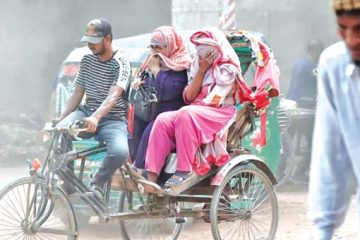Munshi Abdul Ahad
 A cartel is an anti-competitive arrangement between two or more competing businesses. Anticompetitive agreements, particularly cartels, harm consumers in urbanised society, as well as in the emerging countries. In adding together, cartelised industrial sectors lack competition which certainly reduces competitiveness in the long run and may have a negative impact on the overall performance of a country’s economy. Widespread shapes of cartels conduct are: price fixing, market sharing, bid rigging and output control.
A cartel is an anti-competitive arrangement between two or more competing businesses. Anticompetitive agreements, particularly cartels, harm consumers in urbanised society, as well as in the emerging countries. In adding together, cartelised industrial sectors lack competition which certainly reduces competitiveness in the long run and may have a negative impact on the overall performance of a country’s economy. Widespread shapes of cartels conduct are: price fixing, market sharing, bid rigging and output control.
Price fixing take places when competing businesses make an agreement that has the purpose or effect of fixing, controlling or maintaining the price of goods or services prices. This may be in the form of agreed selling or buying; agreed minimum prices; agreed formula for pricing or discounting goods and services; agreed rebates, and allowances or credit terms.
Such agreements may be in writing but are often informal and verbal.
Market sharing refers to agreements between competitors that split up the market so that the participants are privileged from competition.
Such agreements include allocating customers by geographic area; dividing contracts within an area; agreeing not to compete for established customers; agreeing not to produce each other’s products or services; and agreeing not to expand into a competitor’s market.
The key is that competitors agree among themselves how the market will operate, rather than allowing competitive market forces to work.
Bid rigging comes about where two or more competitors agree they will not compete genuinely with each other for particular tenders, allowing one of the participants in the agreement to win the tender. Collusive tendering is a dangerous form of anti-competitive behaviour, some of the more common bid rigging tactics:
Cover bidding — competing businesses choose a winner while the others deliberately bid over an agreed amount, which ensures the selected bidder has the lowest tender and also helps to establish the illusion that the lowest bid is indeed competitive.
Bid suppression — a business agrees not to tender, thus ensuring that the pre-agreed participant will win the contract.
Bid withdrawal — a business withdraws its winning bid so that a competitor will be successful instead.
Bid rotation — competitors agree to take turns at winning business, while monitoring their market shares to ensure they all have a predetermined slice of the pie.
Non-conforming bids — businesses deliberately include terms and conditions that they know will not be acceptable to the purchasers, ensuring that they will not win the bid and that the pre-agreed business will be successful.
Output controls, decided on between companies, can occur in the form of production or sales quota arrangements that involve an agreement between competitors to limit the volume of particular goods or services available on the market; they have the effect of inflating prices in the market. Output restrictions occur when the participants in an industry agree to prevent, restrict or limit supply. The purpose is to create scarcity in order to increase prices (or counter falling prices) while also protecting inefficient suppliers.
Community, consumers, businesses and even governments can be forced to pay higher prices for goods and services. Cartels also distort economic markets, and serve to slow innovation — after all, companies charging abnormal prices have little incentive to spend money on research and development.
The “fighting of cartels” is given a high priority all over the world. Cartels that damage the interests of consumers are a very serious form of economic crime. However, identifying, detecting and proving cartels are a difficult task that requires a combination of law and economic competencies.
Market economy and free trade promote growth and prosperity in structured market. There is a need of co-operation over the frontiers in order to achieve more effective functioning of markets.
There are, however, different views on how cartels could be defined and detected and on what instruments competition authorities should use to fight cartels that are detrimental to consumers. Serious anti-competitive practices are, almost by definition, kept behind locked doors. Competition authorities have different ways and means to collect the necessary evidence that could bring these harmful practices to an end.
Globalisation, the rapid development in the field of information technology, electronic commerce and the so-called new economy are all current phenomena that bring about new challenges for companies as well as for competition authorities.
Bangladesh is going to enact an act styled “Competition Policy and Law”.
The objective of competition law and policy is to eliminate such anticompetitive practices, including cartels, thereby enhancing consumer welfare and contributing to country’s competitiveness.
CUTS International (Consumer Unity & Trust Society) India is working to protect the interest of consumers and fashioning the awareness building against the cartelist activities.
CUTS International called 5th December 2011 “World Competition Day (WCD) with theme “cartels and its harmful effects on the consumers.”
CUTS considers that an agenda to discipline cartels would provide multiple benefits both to the agency/government and consumers. Cartels steal billions of dollars from businesses, taxpayers and ultimately from consumers. Consumers benefit from competition through lower prices and better choice and quality products and services.
(Article originally published on The Daily Star)
The writer is a research fellow of Faculty of General Studies, Bangladesh University of Professionals.







